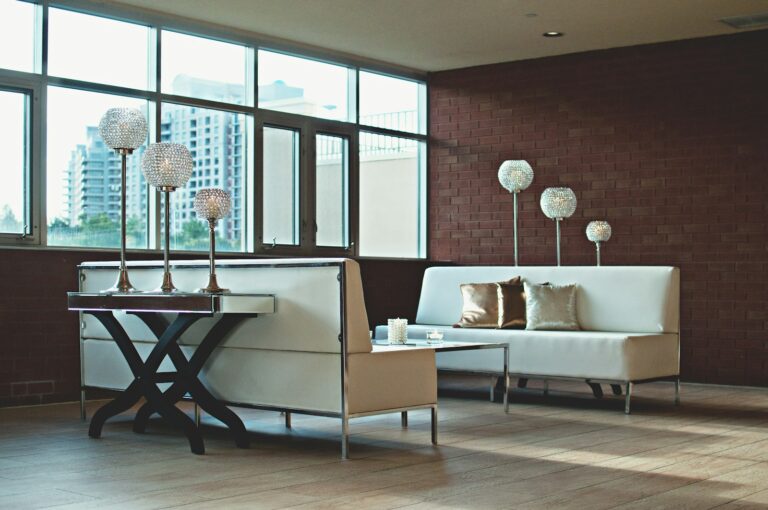In an era marked by growing environmental concerns and escalating energy costs, homeowners are actively seeking ways to reduce their ecological footprint and minimize energy consumption. While numerous factors contribute to a home’s energy efficiency, the flooring choice plays a surprisingly significant role.
Hardwood floors, often lauded for their aesthetic appeal and durability, possess an often overlooked advantage: they can significantly enhance a home’s energy efficiency, contributing to both environmental and financial savings.
Hardwood Floors: Natural Insulators
Hardwood flooring stands out as a natural insulator, effectively reducing heat transfer between the interior and exterior of a home. Unlike materials like tile or concrete, which readily conduct heat, hardwood’s cellular structure naturally resists heat flow. This inherent insulating quality of hardwood translates into tangible benefits for homeowners.
During the summer months, hardwood floors remain cooler to the touch than other flooring types, reducing the need for excessive air conditioning. This translates to lower energy consumption and reduced reliance on artificial cooling systems, contributing to a more comfortable and sustainable living environment.
Conversely, during the colder winter months, hardwood floors retain heat more effectively than their counterparts. This natural insulation helps to maintain a comfortable indoor temperature, lessening the dependence on heating systems and leading to substantial energy savings.
Furthermore, the inherent properties of hardwood flooring can positively impact the overall thermal performance of a home. By reducing heat transfer through the floor, hardwood flooring contributes to a more balanced temperature distribution throughout the house.
This balanced temperature minimizes the need for localized heating or cooling, further enhancing energy efficiency and contributing to a more comfortable and sustainable living environment.
Hardwood Floors: Reducing Energy Loss
Beyond their natural insulating properties, hardwood floors offer a unique advantage in mitigating energy loss through air infiltration. The tight seams and solid construction of hardwood planks effectively prevent air from seeping through the floor, a common source of energy loss in homes. This reduction in air infiltration helps to maintain a stable indoor temperature, minimizing the need for excessive heating or cooling.
Moreover, the absence of gaps and cracks in hardwood flooring, unlike tile or carpet, eliminates potential pathways for drafts to enter the home. Drafts are a significant contributor to energy loss, leading to discomfort and increased heating costs. Hardwood flooring effectively addresses this issue by creating a more airtight and energy-efficient environment.
In addition to reducing drafts, hardwood floors can contribute to improved indoor air quality. Unlike carpets that can trap dust, allergens, and pollutants, hardwood floors are naturally breathable and resistant to dust buildup. This can lead to a healthier and more comfortable living environment, especially for individuals with allergies or sensitivities.
Hardwood Floors: A Long-Term Investment in Energy Efficiency
Beyond their immediate energy efficiency benefits, hardwood floors offer a long-term investment in sustainability and energy savings. Unlike carpets, which require regular replacement, hardwood floors are known for their exceptional durability and longevity. With proper care and maintenance, hardwood floors can last for generations, eliminating the need for frequent replacements and associated energy consumption associated with manufacturing and disposal of new flooring materials.
Furthermore, the renewable nature of hardwood flooring makes it a sustainable choice for environmentally conscious homeowners. By sourcing hardwood from responsibly managed forests, homeowners can ensure that their flooring choice contributes to the preservation of natural resources and biodiversity.
Choosing hardwood flooring is not just an aesthetic choice; it’s a commitment to a more sustainable and energy-efficient lifestyle. The long-term benefits of durability, longevity, and renewability make hardwood floors an investment in both the environment and the future of your home.
Conclusion
In conclusion, hardwood flooring stands out as a compelling choice for homeowners seeking to enhance their home’s energy efficiency and embrace a more sustainable lifestyle. Its inherent insulating properties, ability to reduce air infiltration, and long-term durability contribute to a more comfortable, energy-saving, and environmentally responsible home.
By embracing the natural advantages of hardwood flooring, homeowners can make a tangible difference in their energy consumption, reduce their environmental footprint, and enjoy the enduring beauty and value of a timeless flooring choice.
Frequently Asked Questions
1. How does hardwood flooring compare to other flooring options in terms of energy efficiency?
Answer: Hardwood flooring outperforms many other flooring materials like tile or concrete in terms of energy efficiency. Its natural insulating properties help to regulate indoor temperatures, reducing the need for excessive heating or cooling, and ultimately saving energy.
2. Can hardwood flooring actually help to reduce my heating and cooling costs?
Answer: Absolutely! By minimizing heat transfer and air infiltration, hardwood flooring can significantly reduce your heating and cooling costs. The natural insulation of hardwood helps to maintain a comfortable indoor temperature, leading to lower energy bills and a more sustainable home.
3. Does the type of hardwood used impact its energy efficiency?
Answer: While all hardwood flooring offers some level of insulation, the density and thickness of the wood can influence its energy efficiency. Generally, denser and thicker hardwood planks provide better insulation.
4. Are there any drawbacks to consider when choosing hardwood flooring for energy efficiency?
Answer: While hardwood floors are generally excellent for energy efficiency, it’s important to consider the installation process. Improper installation can lead to air leaks and reduced insulation. It’s essential to choose a qualified installer to ensure a proper and efficient installation.
5. What are some additional tips for maximizing the energy efficiency of my hardwood floors?
Answer: To maximize the energy efficiency of your hardwood floors, consider using area rugs in high-traffic areas to reduce wear and tear, ensuring proper ventilation to prevent moisture buildup, and selecting hardwood flooring with a low VOC (Volatile Organic Compound) content to improve indoor air quality.


